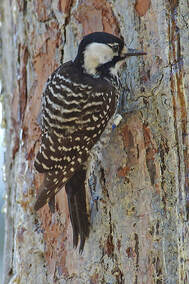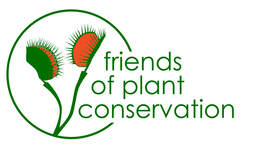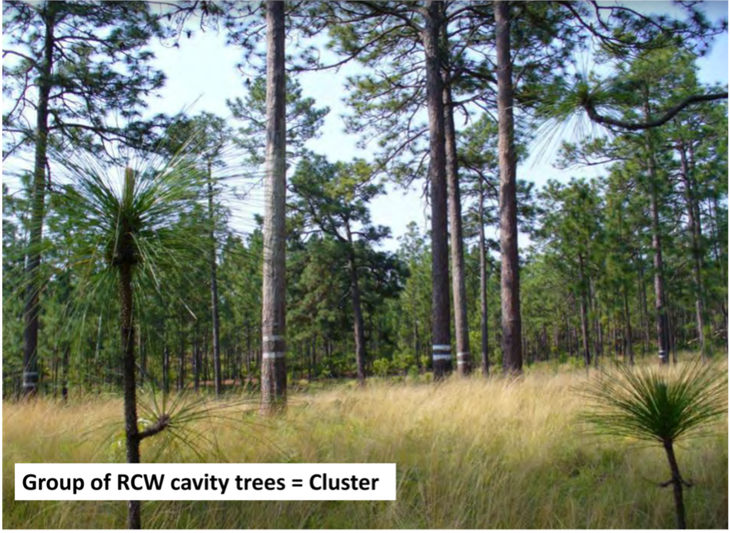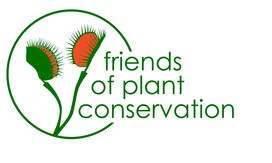Red-cockaded Woodpeckers: A Boiling Spring Lakes Native

In addition to the plant species, the North Carolina Birding Trail reports frequent sightings of Red-cockaded Woodpecker, Brown-headed Nuthatch, Summer Tanager, Blue Grosbeak, Indigo Bunting, and winter sparrows around the state-designated bird sanctuary of Boiling Spring Lakes.
The Red-cockaded Woodpecker (RCW) is a territorial, non-migratory, cavity-nesting bird with a 10+ year lifespan. They are cooperative breeders that live in family groups, and excavate cavities in in live, mature (80+ year old) pine trees. It can take up to 12 years for a new cavity to be excavated, and each RCW couple typically raises its young in the breeding male’s cavity.
Cavity trees, occupied or unoccupied, are protected by federal law. When you are out in a forest, pine trees with white-painted bands typically indicate a cavity tree.
There are currently 13-15 active RCW clusters inside the city limits of Boiling Spring Lakes. There were once more but thousands of cavity trees have been lost to development. Fortunately, there are many more throughout the PCP Preserve lands surrounding the town.
The Plant Conservation Staff is partnering with the US Fish and Wildlife Service to install artificial cavities to increase cluster sites for the RCWs within the Boiling Spring Lakes Nature Preserve. These artificial cavities will reduce the time needed to create a cavity and allow RCWs to use younger pines. Artificial cavities are a proven aid in the red-cockaded woodpecker recovery.
The Red-cockaded Woodpecker (RCW) is a territorial, non-migratory, cavity-nesting bird with a 10+ year lifespan. They are cooperative breeders that live in family groups, and excavate cavities in in live, mature (80+ year old) pine trees. It can take up to 12 years for a new cavity to be excavated, and each RCW couple typically raises its young in the breeding male’s cavity.
Cavity trees, occupied or unoccupied, are protected by federal law. When you are out in a forest, pine trees with white-painted bands typically indicate a cavity tree.
There are currently 13-15 active RCW clusters inside the city limits of Boiling Spring Lakes. There were once more but thousands of cavity trees have been lost to development. Fortunately, there are many more throughout the PCP Preserve lands surrounding the town.
The Plant Conservation Staff is partnering with the US Fish and Wildlife Service to install artificial cavities to increase cluster sites for the RCWs within the Boiling Spring Lakes Nature Preserve. These artificial cavities will reduce the time needed to create a cavity and allow RCWs to use younger pines. Artificial cavities are a proven aid in the red-cockaded woodpecker recovery.
Photos Courtesy of Jan Goodson, Wildlife Biologist


